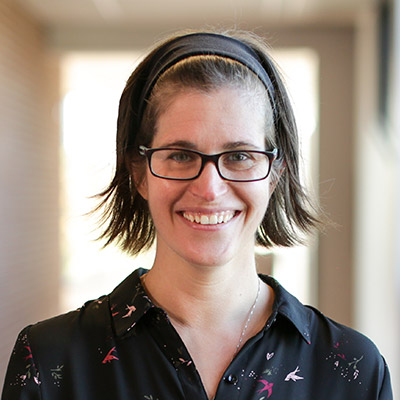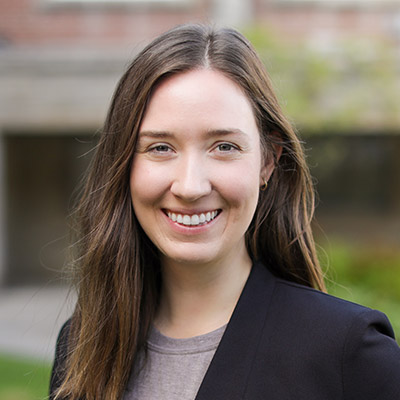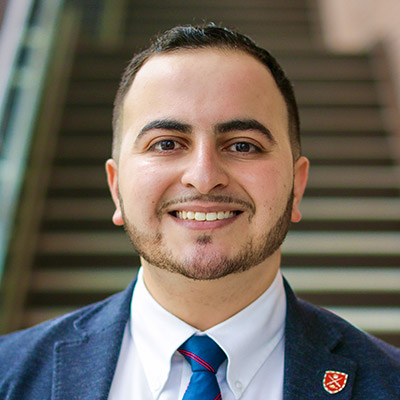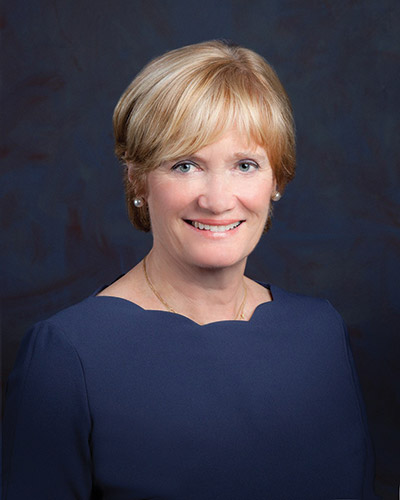Incoming Students
Students who are starting at Huron in September should attend a Course Registration session and review Huron’s course selection and registration resources (including the registration guide and course selection video), available here: https://huronatwestern.ca/future-students/course-registration/.
The course registration period is anticipated to open for incoming students by mid-June. Students are encouraged to enrol in courses within the first few weeks of course registration opening in order to maximize their course scheduling options. Changes can be made to course enrolment until the add deadline in early September.
Incoming students who have 2.0 or more transfer credits (including IB credits, AP credits, or credits from another postsecondary institution) may be eligible to take one or more 2000 level courses in their first year at Huron. Students should prioritize completion of at least 5.0 (and up to 7.0) 1000 level credits to complete their first year requirement.
Students who have a transfer credit for a particular course do not have to take that course again, as they already have credit for it, even if it is required for admission into their preferred module. Transfer credits count towards the 20.0 credits needed for a four-year degree.
Connect with admissions@huron.uwo.ca if you have questions about whether credits you have can transfer to Huron.
Students who start at Huron in January will have limited course options and will not be able to complete any full year courses, which may be required to progress into their preferred module. Students in this situation can plan to take these courses the following academic year.
Students who start in January will continue as first year students after their first term (January to April) as students cannot complete enough credits in winter term to be able to progress into second year.
Principal courses refer to the 3.0 (4.0 for most MOS modules) 1000 level courses needed for a first-year student to advance from first year to second year in their preferred module. In many cases, only 0.5 or 1.0 principal courses are specified under “Admission Requirements” for a particular module on the Academic Calendar. In these cases, the remaining principal courses are any other 1000 level courses.
*Note: Students must complete 5.0-7.0 1000 level courses to complete their degree.
Course Selection and Enrollment
Students can enroll in courses through their Student Center by following the prompts under “Enroll in Classes”. Students must have a valid enrolment appointment before they can enroll in courses. Students can check their enrollment appointment under “Open Enrollment Dates”. These dates will be updated throughout the term.
Students can view courses that will be offered during the academic year through Western’s Fall/Winter Academic Timetable: https://studentservices.uwo.ca/secure/timetables/mastertt/ttindex.cfm
Students can view courses that will be offered during the summer term through Western’s Summer Academic Timetable: https://studentservices.uwo.ca/secure/timetables/SummerTT/ttindex.cfm
Students can view course offerings and create a draft schedule through Draft My Schedule: https://draftmyschedule.uwo.ca/login.cfm
Students can take up to 2.5 courses each term for a total of 5.0 courses during the academic year. To be considered full-time, students must take at least 3.5 courses during the academic year. Be aware that funding (such as scholarships or OSAP) may have different requirements for what it means to be full- time. Consult Huron’s Financial Aid Officer for more information.
Yes, view Degree and Module Requirements (below) for more information.
Courses offered at Huron have section numbers that begin with “55” such as “550”, “551”, “552”.
Huron offers courses worth 0.5 credit, which last the length of one term (September to December or January to April), and courses that are worth 1.0 credit which last the full academic year (September to April). Here is a helpful chart to understand:
| Full Year Courses Worth 1.0 Credits (September to April) | Fall Term Courses Worth 0.5 Credits (September to December) | Winter Term Courses Worth 0.5 Credits (January to April) | |
| Essay Courses | Courses ending in “E” (ie. History 1801E) | Courses ending in “F” (ie. Philosophy 2700F) | Courses ending in “G” (ie. Writing 1021G) |
| Courses with no suffix (ie. Speech 2001) | Courses ending in “A” (ie. Economics 2121A) | Courses ending in “B” (ie. Religious Studies 2295B) |
Note that, for example, students should not take Philosophy 1250F and Philosophy 1250G as these are the same course, just offered in different terms. They are not part one and part two of the same course.
A course is considered to be an “essay course” if it requires students to write a certain number of words throughout the course as indicated below:
- 1.0 credit course at 1000 to 1999 level: at least 3000 words
- 0.5 credit course at 1000 to 1999 level: at least 1500 words
- 1.0 credit course at 2000 level and above: at least 5000 words
- Half course (2000 and above): at least 2500 words
You can search for course outlines using the search engine box in top right hand corner of the Huron website, or visit the Future Students page for program listings.
Yes, Huron students are permitted to take courses away from Huron in accordance with Huron’s Residency Requirement (see below for more information).
First year students are encouraged to come to a SOAR (Summer Orientation and Academic Registration) session where an Academic Advisor can assist with course selection and review students’ timetables. Upper year students who want assistance with course selection are encouraged to connect with their Academic Advisor. Students are not required to get their timetables approved by an Academic Advisor. Students are ultimately responsible for ensuring they are enrolled in the correct courses.
Students can withdraw from a course with no academic penalty up until the drop date. A “WDN” may appear on your academic record next to the course you dropped. Check the Academic Calendar for the last day to add or drop a course.
Please see the following link with details on how to set up you Student Center account and instructions on “How do I…” complete specific requests: Student Center Access Guide
Before students can enroll in Spring/Summer courses, they must complete “Summer Term Activation” through their Student Center.
Prerequisites are courses that must be successfully completed prior to another course to ensure you have the required knowledge.
Antirequisites are two courses that overlap sufficiently such that both cannot be taken for credit. If you take a course that is antirequisite for another course that you’ve already taken, the first course you completed will still appear on your record but will no longer count towards your degree requirements.
Check the timetable and Academic Calendar to view details on a particular course’s prerequisites and antirequisites.
Your term average is the average of your grades from a particular term (ie. academic year (September to April) or summer term (May to August)). Your modular average is the average on the courses required for your module, not including first year admission requirements (see Academic Calendar to view modules). If you are pursing two modules (ex. double major or major and minor), then you will have two modular averages. Your cumulative average is the average on all of your courses on your academic record. The minimum required modular and cumulative average to graduate is 60%.
Note that if you repeat a course, the initial attempt will still appear on your record but will not count towards your averages.
At Huron we do not use GPA. To determine your GPA for other purposes, you can use the OMSAS conversion table: https://www.ouac.on.ca/guide/omsas-conversion-table/.
Degree and Module Requirements
For a four-year degree, students require 20.0 credits. For a three-year degree, students require 15.0 credits. Students may take longer than three or four years, respectively, to complete their degree requirements. A maximum of 7.0 first year credits can count towards one’s degree.
You can view admission requirements and required courses for your module on the Academic Calendar under “Modules/Programs”.
For a four-year degree, you can have up to 14.0 credits in one subject. For a three-year degree, you can have up to 9.0 credits in one subject.
Failing a course will decrease your cumulative average. An ‘F’ will not be removed from your record, even if you repeat the course. You can take a course again (up to three times, depending on the situation) and it is always the most recent attempt that counts. If you have more than 6.0 fails, you will be required to withdraw from the university.
Students must complete Breadth Requirements. Breadth Requirement include successfully completing at least 1.0 credits in each of Category A (Social Science), Category B (Arts and Humanities), and Category C (Math and Science). At least two of these Categories must be completed in first year at the 1000 level. Students must complete at least 2.0 essay credits, at least 1.0 must be at the 2000 level or above.
To graduate or to be in good standing, students require a minimum modular and cumulative average of at least 60%. For Honours programs, students typically require averages of at least 70%. In many cases, averages required are program dependent. Check the Academic Calendar to determine what grades/averages are required for your program.
Students can request to change their program through their Student Centre during the Intent to Register (ITR) period which takes place every year during the month of March. Students must complete an ITR whether they wish to remain in the same program or change programs. Students will only be admitted into a program if they meet the requirements outlined in the Academic Calendar.
Students are encouraged to create parallel plans so if their first choice program doesn’t work out, they have a second choice. If a student can’t get into their chosen program, they will be “Undeclared”. Students are encouraged to check out the Academic Calendar to explore program options and to meet with an Academic Advisor for more information.
Students can view their program and status through their Student Centre under “My Program”. Students’ programs are typically updated in mid-June after they are reviewed by an Academic Advisor.
Students can view their grades through their Student Centre under “View My Grades” or “Web Academic Report”.
A module is a collection of courses outlined on the Academic Calendar that define an area of study. Types of modules include Honours Specializations, Specializations, Majors, and Minors.
Academic Resources
There are numerous resources available to help Huron students succeed. These resources include Huron’s Writing Services and Course Content Support and Western’s Learning Skills Services.
Huron’s Writing Services offers one-on-one content supports for certain courses for subjects including Math and Economics. Students can sign up for these appointments for free through Huron’s website. Our office does not connect students with private tutors. Your instructors or peers may be able to make tutor recommendations.
Academic Consideration and Accommodation
Academic consideration is a cooperative process between the university, the student, and academic staff. It is intended for short term purposes such as when a student is experiencing an acute illness. Academic consideration is intended to provide students with consistent, fair, and pedagogically appropriate consideration without compromising the academic integrity of the course or program, when they have been unable to complete some component of a course due to extenuating circumstances. Students seeking academic consideration should connect with their Academic Advisor.
Academic accommodation is intended for students who have long-term or chronic medical considerations (physical or mental) which may impede their ability to complete academic responsibilities. Students seeking academic accommodations should connect with Student Accessibility Services through Western.
Note that there is no expectation that a student must be in optimum physical or mental condition to carry out their academic responsibilities.
Depending on why you missed your test, midterm, or handed your assignment in late, you may be eligible for academic consideration. Huron Student Support Services will recommend academic consideration for students for short-term medical concerns, compassionate considerations, varsity athletic commitments, or religious considerations. Appropriate documentation is required as well as the Academic Considerations Request Form (which can be accessed through Huron Student Support Services). If approved, it will be up to your instructor as to what consideration will be granted (ex. Write makeup, re-weight evaluations, accept late assignment).
Students must submit the required documentation to Huron Student Support Services in a timely manner and follow the process outlined on the Academic Calendar.
Note that students are not guaranteed to be granted academic consideration.
No, students will not be granted academic consideration for things like flights, weddings, or interviews.
Yes, students may be granted academic consideration for exams in the December or April exam period if they have 3 exams within 23 hours, 4 exams within 47 hours, or 5 exams within 71 hours. The time between exams is considered from when the exam starts.
Students who had an IEP in high school may be eligible for academic accommodation through Accessible Education at Western.
Accessible Education plays a central role in the effort to ensure that academic programs are accessible for all students. Accesible Education arranges academic accommodation for classes, exams, internships and other course or program activities, as well as provide digital and Braille textbooks, accessible campus transportation, learning strategy instruction for students with learning disabilities, access to computer labs that are equipped with assistive technology, referrals for assessments and other services.
Students must register with Accessible Education to determine if they are eligible. For additional information and how to register please visit the Accessible Education website:
http://academicsupport.uwo.ca/accessible_education/index.html
Probation and Required to Withdraw Status
A student will be put on probation if their cumulative average is below 55% (for first year students) or below 60% (for senior level students). A student who is put on probation must meet with an Academic Advisor and meet conditions of their probation contract in order to be back in good standing.
A student will be required to withdraw if their cumulative average is below 50% (for first year students) or below 55% (for senior level students); has failed more than 6.0 courses; or has not met probation requirements. A student who is RTW cannot take courses from the university for a minimum of twelve months. A student who has been RTW can apply for readmission to return to Huron after twelve months. Students who are RTW can apply for a Dean’s Waiver which, if granted, permits a student to continue at Huron under Dean’s Waiver conditions.
Taking Courses Away from Huron
Residency Requirements dictate that Huron students must take at least 60% of their courses at Huron each academic year. The other 40% can be taken at Western, King’s, or Brescia. If a course is offered at Huron, students must take it at Huron. If students are not meeting Residency, they may be removed from one or more of their courses.
Residency Requirements do not apply during the Spring/Summer term or for students on exchange.
Students who’d like to go on exchange are encouraged to do so in their third year. Tuition is paid to Huron. For additional information about exchange, visit Huron’s website: https://huronatwestern.ca/student-life/global/exchange/outgoing/
An LOP allows students to take a required course away from Huron and have it count it towards their degree. Only courses required for one’s program will be considered. Contact Huron Student Support Services for additional information.
Yes, Huron’s Political Science department has offered a course where students travel to Rwanda. Huron’s Centre for Global Studies department also has opportunities for students to get Huron credit while travelling internationally. Typically, students will have to submit an application for these courses. Reach out to the appropriate department to learn more.
Key Contacts


Betty Camarinha
8:30 a.m. – 4:00 p.m.
Monday – Friday

Erie Conners
8:30 a.m. – 4:00 p.m. Monday – Friday

Lauren Hogg
8:30 a.m. – 4:00 p.m.
Monday – Friday


Jennifer Morocco
8:30 a.m. – 4:00 p.m.
Monday – Friday

Laura Sedgwick, MA
8:30 a.m. – 4:00 p.m.
Monday – Friday








 Wes Hall is the Founder and Chairman of Kingsdale Advisors, and The BlackNorth Initiative, and Canada’s first Black Dragon investor on CBC’s Dragons’ Den.
Wes Hall is the Founder and Chairman of Kingsdale Advisors, and The BlackNorth Initiative, and Canada’s first Black Dragon investor on CBC’s Dragons’ Den.


 Leigh Allen is the AVP, Global Strategic Research, Reinsurance Group of America Inc., one of the world’s largest global life and reinsurance companies.
Leigh Allen is the AVP, Global Strategic Research, Reinsurance Group of America Inc., one of the world’s largest global life and reinsurance companies. Yola Ventresca is a Managing Partner, Lerners LLP, Secretary of Huron’s Board of Governors and a Huron Class of ’02 alumni. Selected as one of Canada’s “Best Lawyers,” she is passionate about the value of Liberal Arts in helping students succeed in their careers.
Yola Ventresca is a Managing Partner, Lerners LLP, Secretary of Huron’s Board of Governors and a Huron Class of ’02 alumni. Selected as one of Canada’s “Best Lawyers,” she is passionate about the value of Liberal Arts in helping students succeed in their careers.

 Lisa Jones Keenan is the Vice President of Sales at Xplornet Communications, the largest rural fixed wireless broadband service provider in Canada.
Lisa Jones Keenan is the Vice President of Sales at Xplornet Communications, the largest rural fixed wireless broadband service provider in Canada. Ranjita is Executive Chair of the Oxford Global Partnership, advising investors, businesses, family offices and entrepreneurs on sustainable, inclusive and responsible value creation. A Business Fellow at Oxford University’s Smith School, Ranjita engages with companies on pursuing value with values, and teaches a postgraduate “Essentials of ESG & DEI” course.
Ranjita is Executive Chair of the Oxford Global Partnership, advising investors, businesses, family offices and entrepreneurs on sustainable, inclusive and responsible value creation. A Business Fellow at Oxford University’s Smith School, Ranjita engages with companies on pursuing value with values, and teaches a postgraduate “Essentials of ESG & DEI” course. Michael Medline is the President and CEO of Empire Company Limited and Sobeys Inc., a leading Canadian grocery retailer with grocery and ecommerce brands that reach across Canada, including Sobeys, Safeway, IGA, FreshCo, Foodland, Thrifty Foods, Farm Boy, Longo’s and Voilà.
Michael Medline is the President and CEO of Empire Company Limited and Sobeys Inc., a leading Canadian grocery retailer with grocery and ecommerce brands that reach across Canada, including Sobeys, Safeway, IGA, FreshCo, Foodland, Thrifty Foods, Farm Boy, Longo’s and Voilà. Susan Farrow is an Assistant Professor in The Temerty Faculty of Medicine at the University of Toronto and a Founding Partner and Co-Director of The Toronto Institute of Group Studies, an organization offering certified training and education in group leadership.
Susan Farrow is an Assistant Professor in The Temerty Faculty of Medicine at the University of Toronto and a Founding Partner and Co-Director of The Toronto Institute of Group Studies, an organization offering certified training and education in group leadership. Frank Holmes is CEO and Chief Investment Officer of U.S. Global Investors, as well as a business commentator, philanthropist and Huron Class of ‘78 alumnus. Holmes also serves as the Executive Chairman of HIVE Blockchain Technologies, the first cryptocurrency mining company to go public in 2017.
Frank Holmes is CEO and Chief Investment Officer of U.S. Global Investors, as well as a business commentator, philanthropist and Huron Class of ‘78 alumnus. Holmes also serves as the Executive Chairman of HIVE Blockchain Technologies, the first cryptocurrency mining company to go public in 2017. Caleb Hayhoe is the Founder & Chairman of Flowerdale Group and a Huron Class of ’85 Alumnus. Flowerdale Group is a Hong Kong based family office with a global investment outlook across public markets, real estate and private investment. Hayhoe previously spent over ten years building a global sourcing business together with an exceptional team, and remains committed to entrepreneurialism and helping great ideas become sustainable companies.
Caleb Hayhoe is the Founder & Chairman of Flowerdale Group and a Huron Class of ’85 Alumnus. Flowerdale Group is a Hong Kong based family office with a global investment outlook across public markets, real estate and private investment. Hayhoe previously spent over ten years building a global sourcing business together with an exceptional team, and remains committed to entrepreneurialism and helping great ideas become sustainable companies. Kelly Meighen is an experienced philanthropist and volunteer. In her role as president of the T.R. Meighen Family Foundation, she has created a legacy of volunteerism and philanthropic giving in the areas of youth mental health advocacy, environmental conservation and cultural vibrancy.
Kelly Meighen is an experienced philanthropist and volunteer. In her role as president of the T.R. Meighen Family Foundation, she has created a legacy of volunteerism and philanthropic giving in the areas of youth mental health advocacy, environmental conservation and cultural vibrancy.




